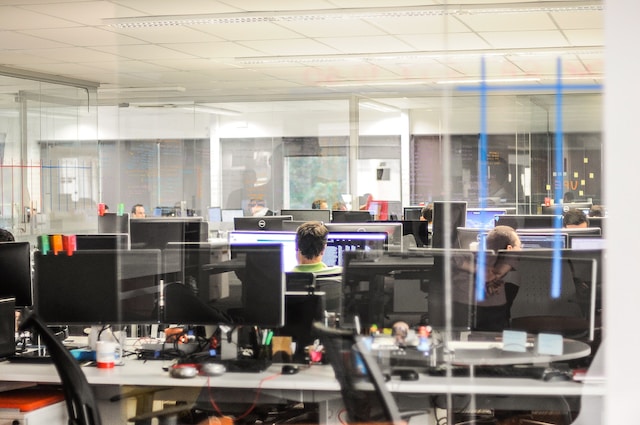Cyber Security Analyst vs. Cloud Cyber Security Analyst
The Future is Secure: Comparing Cyber Security Analyst and Cloud Cyber Security Analyst Roles

Table of contents
In the rapidly evolving landscape of information security, the roles of Cyber Security Analyst and Cloud Cyber Security Analyst have gained significant prominence. Both positions are crucial in safeguarding sensitive data and ensuring the integrity of systems, but they differ in focus and expertise. This article delves into the definitions, responsibilities, required skills, educational backgrounds, tools and software used, common industries, outlooks, and practical tips for getting started in these two vital roles.
Definitions
Cyber Security Analyst: A Cyber Security Analyst is responsible for protecting an organization’s computer systems and networks from cyber threats. They monitor, detect, and respond to security incidents, ensuring that data remains confidential, integral, and available.
Cloud Cyber Security Analyst: A Cloud Cyber Security Analyst specializes in securing cloud-based environments. This role focuses on protecting data and applications hosted in the cloud, implementing security measures tailored to cloud infrastructures, and ensuring Compliance with relevant regulations.
Responsibilities
Cyber Security Analyst
- Monitor network traffic for suspicious activity.
- Conduct vulnerability assessments and penetration testing.
- Respond to security incidents and breaches.
- Develop and implement security policies and procedures.
- Collaborate with IT teams to enhance security measures.
- Conduct security awareness training for employees.
Cloud Cyber Security Analyst
- Assess and implement security controls for cloud services.
- Monitor cloud environments for security threats and Vulnerabilities.
- Ensure compliance with cloud security standards and regulations.
- Collaborate with cloud service providers to enhance security.
- Develop Incident response plans specific to cloud environments.
- Conduct risk assessments for cloud-based applications and data.
Required Skills
Cyber Security Analyst
- Strong understanding of network protocols and security technologies.
- Proficiency in security information and event management (SIEM) tools.
- Knowledge of Firewalls, intrusion detection systems, and antivirus software.
- Familiarity with regulatory frameworks (e.g., GDPR, HIPAA).
- Analytical and problem-solving skills.
Cloud Cyber Security Analyst
- Expertise in cloud security architecture and best practices.
- Familiarity with cloud service models (IaaS, PaaS, SaaS).
- Proficiency in cloud security tools (e.g., AWS Security Hub, Azure Security Center).
- Understanding of identity and access management (IAM) in cloud environments.
- Knowledge of compliance standards specific to cloud services (e.g., ISO 27001, SOC 2).
Educational Backgrounds
Cyber Security Analyst
- Bachelor’s degree in Cybersecurity, Information Technology, or a related field.
- Relevant certifications (e.g., CompTIA Security+, Certified Information Systems Security Professional (CISSP), Certified Ethical Hacker (CEH)).
Cloud Cyber Security Analyst
- Bachelor’s degree in Cybersecurity, Cloud Computing, or a related field.
- Specialized certifications (e.g., Certified Cloud Security Professional (CCSP), AWS Certified Security – Specialty, Microsoft Certified: Azure Security Engineer Associate).
Tools and Software Used
Cyber Security Analyst
- SIEM tools (e.g., Splunk, LogRhythm).
- Vulnerability assessment tools (e.g., Nessus, Qualys).
- Firewalls and Intrusion detection systems (e.g., Cisco ASA, Snort).
- Endpoint protection software (e.g., CrowdStrike, McAfee).
Cloud Cyber Security Analyst
- Cloud security tools (e.g., AWS CloudTrail, Azure Sentinel).
- Configuration management tools (e.g., Terraform, CloudFormation).
- Identity and access management solutions (e.g., Okta, AWS IAM).
- Cloud Monitoring and logging tools (e.g., Datadog, New Relic).
Common Industries
Cyber Security Analyst
- Financial services
- Healthcare
- Government agencies
- Technology firms
- Retail
Cloud Cyber Security Analyst
- Cloud service providers
- E-commerce
- Software as a Service (SaaS) companies
- Telecommunications
- Education
Outlooks
The demand for both Cyber Security Analysts and Cloud Cyber Security Analysts is on the rise, driven by increasing cyber threats and the growing adoption of cloud technologies. According to the U.S. Bureau of Labor Statistics, employment for information security analysts is projected to grow 31% from 2019 to 2029, much faster than the average for all occupations. As organizations continue to migrate to the cloud, the need for specialized cloud security expertise will also increase, making the role of Cloud Cyber Security Analyst highly sought after.
Practical Tips for Getting Started
- Gain Relevant Experience: Start with internships or entry-level positions in IT or cybersecurity to build foundational skills.
- Pursue Certifications: Obtain relevant certifications to enhance your credibility and knowledge in cybersecurity or cloud security.
- Stay Updated: Follow industry news, blogs, and forums to stay informed about the latest threats and security practices.
- Network: Join professional organizations and attend conferences to connect with industry professionals and learn from their experiences.
- Hands-On Practice: Utilize online labs and platforms (e.g., TryHackMe, Hack The Box) to practice your skills in real-world scenarios.
In conclusion, while both Cyber Security Analysts and Cloud Cyber Security Analysts play critical roles in protecting information systems, their focus and expertise differ significantly. Understanding these differences can help aspiring professionals choose the right path in the dynamic field of cybersecurity.
Lead Mobility Engineer
@ Leidos | 6314 Remote/Teleworker US, United States
Full Time Senior-level / Expert USD 126K - 227KEnterprise Solutions Architect
@ RELI Group | Catonsville, MD, 21228 (Remote)
Full Time Senior-level / Expert USD 160K - 175KEPSRM Portfolio Program Manager
@ Centene Corporation | Remote-FL, United States
Full Time Mid-level / Intermediate USD 86K - 154KExecutive Director, Head of IT Integration and Operations
@ Hightower Advisors | Chicago, IL, US
Full Time Executive-level / Director USD 200K - 220KSecurity Workforce & Talent Strategy Principal
@ AmerisourceBergen | USA - PA - Remote, United States
Full Time Senior-level / Expert USD 121K+